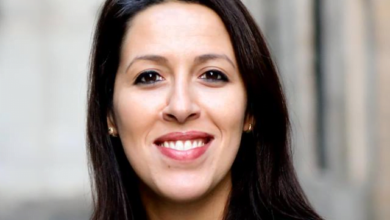UK post-Brexit : (re)connecting with Africa
In the time of the Brexit, trends and forecasts suggest that Commonwealth member countries should take over and become the main trading partners of Britain exiting the European Union.
By Morgan Philips Group
Nineteen of the fifty-three Commonwealth Member States are located on the African continent. Today, the Commonwealth is still relevant for Africa. Between investment and development, the organization is an important partner of African member states, particularly in South Africa and Nigeria. Being part of The Commonwealth offers major advantages in trade and investment to its members and provides better access in education and business opportunities. The Commonwealth can also give economic, administrative and humanitarian assistance from its Secretariat to States in need of it.
“We want to move from a relationship based on aid to one of economic prosperity and trade”
Sharing strong relations with South Africa, Nigeria and Kenya, the United Kingdom is multiplying contracts and trade agreements. Nigeria could even appear as a major post-Brexit ally : today, trade relations between Abuja and London are among the most important ones. Nigeria has the largest economy on the continent and ranks fifth among the strongest economies in the Commonwealth. Nigeria and South Africa’s trade accounts for about 70% of the Commonwealth’s African trade. Last year, Penny Mordaunt, former Secretary of State for International Development of the UK, and now Secretary of State for Defense, said that she wanted to see Nigeria’s relationship with the UK “move towards greater trade and investment” : “We want to move from a relationship based on aid to one of economic prosperity and trade”. The UK government works hard to support this increased trade and investment.
« I want to ensure that the UK’s relationship to Africa is more and more about private investment, about doing business and making the most of commercial opportunities together »
“I want to ensure that the UK’s relationship to Africa is more and more about private investment, about doing business and making the most of commercial opportunities together. Here as elsewhere in the continent, we’re using our age and our investment partnership to lift countries out of poverty, spread stability and create jobs and prosperity for the future”. For Theresa May, the Kenyan market offers many opportunities for the UK. Oil exploitation is a major sector in the commercial relations between London and Nairobi. Last June, Kenya joined forces with Total, Tullow Oil and Africa Oil Corp to develop the Lokichar field, located in the northwestern part of the country, with a capacity of up to 60,000 to 80,000 barrels per day. Discovered by the Tullow Oil and Afica Oil groups in 2012, this oil field would have an estimated potential of 560 million barrels. Extraction is expected to begin as early as 2022 and the British group has announced that gross daily production will be 60,000 to 100,000 barrels. Tullow Oil holds the record for the most significant discovery of oil resources in the East African region. Present in Kenya since 2012, the British company is increasing exploration and investment.
“By 2022, I want the United Kingdom to become the largest investor in Africa among the G7 countries. I want British private sector companies to take the lead by investing the billions that will enable African economies to grow by billions. We have the tools to do it”. During her official visits to South Africa, Kenya and Nigeria in 2018, former Prime Minister Theresa May clearly announced her ambition to make the United Kingdom the leading investor among the G7 countries in Africa by 2022. Britain could then become the largest provider of foreign direct investment in Africa, surpassing the United States, currently leading the way ($55 billion (UK) compared to $57 billion (US) in 2016, according to the 2018 World Investment Report by the United Nations Conference on Trade and Development (UNCTAD), which identified the main investors on the African continent). The UK’s strategy for Africa is based on expanding trade : between 2011 and 2016, London increased its investment in Africa by more than a billion, while the United States investment remained stable and French investment, ranked third in the ranking of major investments, went from $52 billion to $49 billion.
“I want strong African economies with which British companies can do business freely and fairly”
“I want strong African economies with which British companies can do business freely and fairly”. Theresa May promised to invest £4 billion to create jobs for Africa’s youth. Through its investments, London hopes that the private sector will grow in Africa. For many years, British companies have been present in Africa (Anglo American, Standard Chartered Bank, GlaxoSmithKline,…). The British government claims that these presences are beneficial for Africa : by generating profits, these large companies make a positive impact on the States and regions in which they operate.
To ensure the success of investments, Britain needs to create innovative partnerships, have operational capacity and be able to mitigate potential risks. Queen Elizabeth hopes that the Commonwealth can continue to provide continuity of its policy and stability for future generations. Thanks to its raw materials, sustained growth rates and a potential market of 1.2 billion potential consumers, Africa attracts investors. With Brexit, Britain hopes that its Commonwealth partners will help to increase its trade and especially African member countries as the African economy is expanding and developing rapidly, creating new opportunities for London, which sees it as an opportunity to increase its trades and investments.






